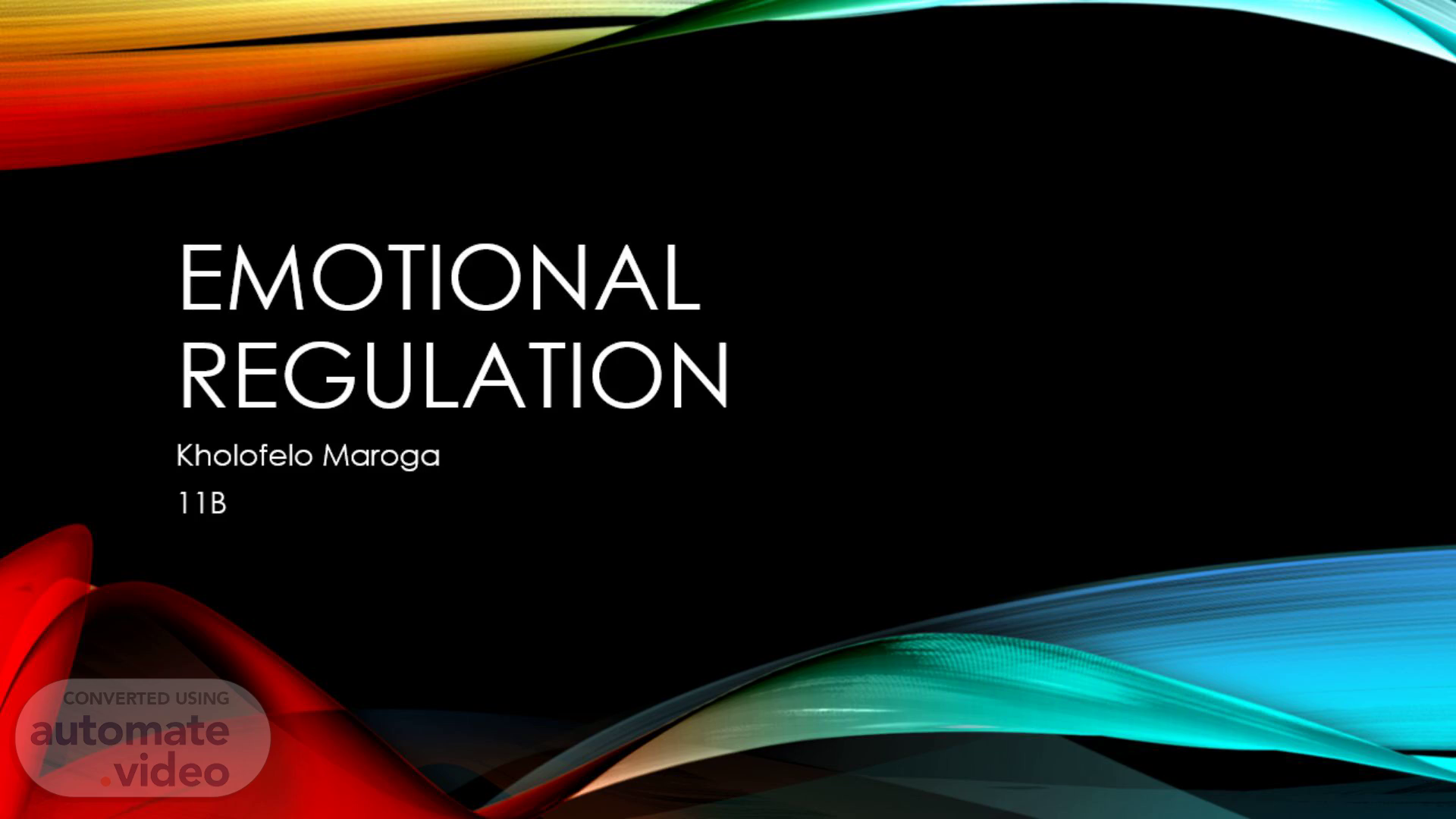
Emotional Regulation
Scene 1 (0s)
Emotional Regulation. Kholofelo Maroga 11B.
Scene 2 (6s)
Contents. Emotional Regulation Emotional Regulation Strategies Benefits of Adaptability as an emotional regulation strategy How to Develop Adaptability Skills Emotional Dysregulation.
Scene 3 (16s)
What is emotional regulation. Emotional regulation is the ability to control one's own emotional state. It may include behaviors such as evaluating a tough situation to lessen anger or anxiety, suppressing evident symptoms of grief or fear, or focusing on reasons to be cheerful or calm. Emotional Regulation involves 3 components: Initiating actions triggered by emotions. Inhibiting actions triggered by emotions .Modulating responses triggered by emotions..
Scene 4 (38s)
Emotional Regulation Strategies. Meditation Receiving Therapy Labeling Emotions Exercising Breathing Exercises Journalling Identifying your triggers.
Scene 5 (46s)
Benefits of Adaptability as an emotional regulation strategy.
Scene 6 (1m 20s)
How to Develop Adaptability Skills. Improve your problem-solving abilities. Problem solving allows you to address particular challenges as they occur... Learn to welcome change. You've heard it before, but it bears repeating: you'll always have to deal with change. Maintain an open mind... Check your ego at the entrance… Practice mindfulness Push yourself beyond of your comfort zone..
Scene 7 (1m 39s)
Emotional Dysregulation. Emotional dysregulation refers to an emotional response that is poorly regulated and does not fit within the commonly acknowledged range of emotional reactions. It is also known as noticeable fluctuation in mood, mood swings, or labile mood. Emotional dysregulation reduces our capacity to adjust to changes in our lives. We stop using our coping strategies and become more easily distracted, which is why we frequently begin to oppose changes. Objective assessment is a fantastic practice to develop adaptation. Consider the scenario that your closest buddy is going through when you find yourself overcome by negative feelings that you wish to suppress and risk reacting destructively. In this case, what would you have advised them to do? If you would like, write down your responses. Then, consider whether you are taking the same actions for yourself..